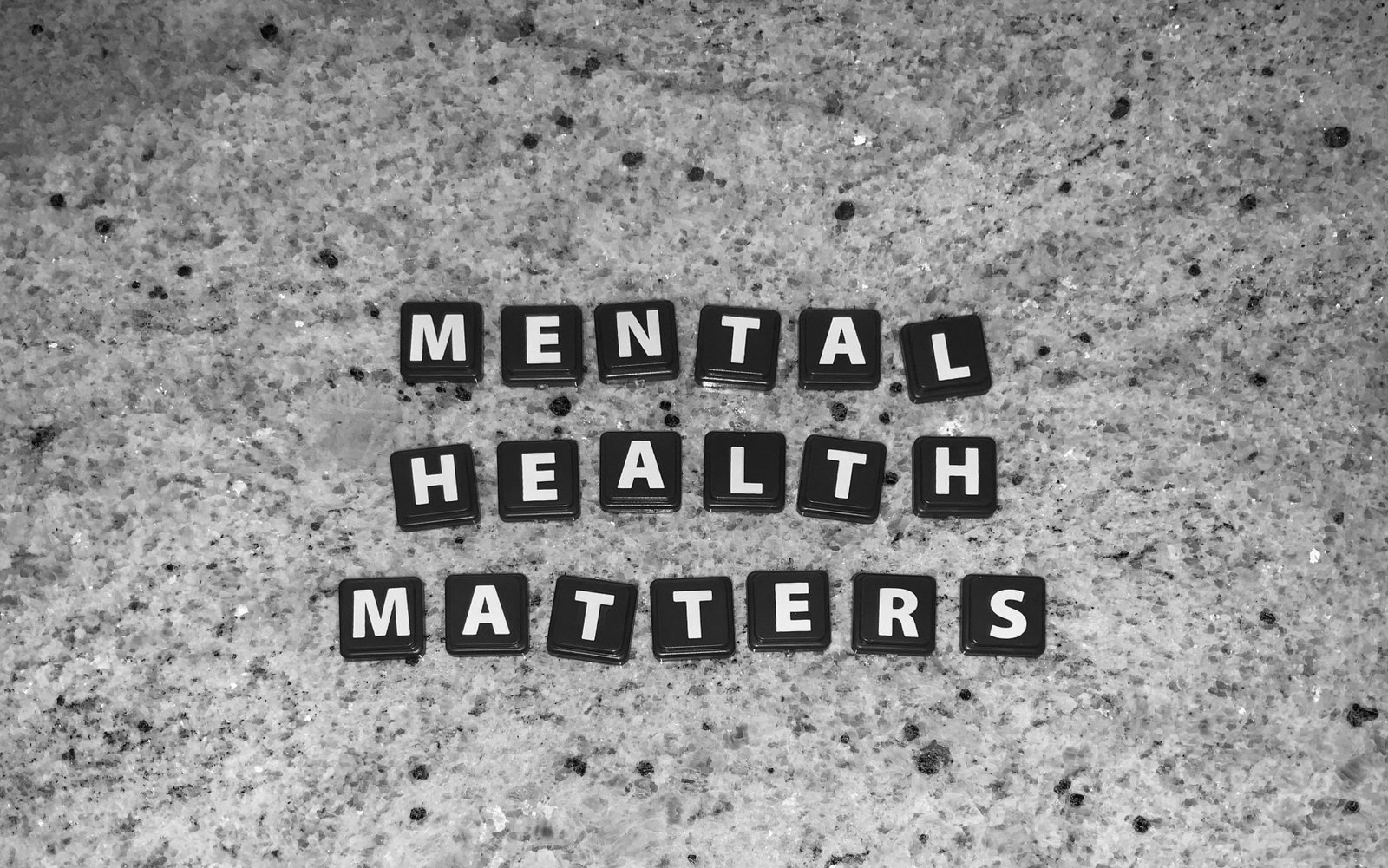
Mental Health and Job Searching: Coping with Stress and Maintaining Well-being
In the competitive rush of job searching, it's all too easy for your mental health to be put on the back-burner. Yet, it's this very aspect of your well-being that ensures your resilience, persists through setbacks, and ultimately, lands you that perfect role. Our complexly interwoven journey of safeguarding mental health while maneuvering the treacherous terrain of job searching isnt an easy feat
So, how do we maintain equilibrium in the throes of an exhaustive job hunt? How can we aptly juggle the pressure of countless interviews, rejection emails, and high expectations without losing our peace of mind? In this insightful exploration, we navigate the crests and troughs of mental health in the backdrop of job hunting - offering key strategies for managing stress and preserving your mental fortitude.

Photo by Marcel Strauß on Unsplash
Understanding Mental Health
Understanding mental health is the first step in navigating the turbulent seas of job searching while maintaining a balanced state of mind. Mental health refers to our cognitive, emotional, and behavioral well-being. It's about how we think, feel, and behave. Mental health is not only the absence of mental disorders or disabilities but also encompasses subjective well-being, perceived self-efficacy, autonomy, competence, intergenerational dependence, and self-realization of one's intellectual and emotional potential.
Mental health plays a crucial role in our ability to manage stress, relate to others, and make decisions. Our mental health not only affects our daily life but also impacts our physical health. Mental health issues are common; however, the stigma associated with them often prevents individuals from seeking help. It's important to note that having a mental health problem is just as normal and treatable as having a physical health problem.
In the context of job searching, mental health becomes even more critical. The uncertainty, pressure, and stress associated with job searching can take a toll on our mental health, leading to a plethora of issues such as anxiety, depression, and burnout. Understanding mental health helps us recognize when we might be struggling and need support, allowing us to take the necessary steps to protect our mental well-being.
The Relationship between Job Searching and Stress
Job searching and stress are often inseparable companions, each feeding into the other in a cyclical pattern. The job search process can be a stressful endeavor due to its inherent uncertainty, rejection, and high stakes. Every application sent, every interview attended, and every rejection received can induce stress, anxiety, and even depression.
The uncertainty associated with job searching, the constant need to put one's best foot forward, the fear of rejection - all these factors contribute to the stress associated with job hunting. The competitive nature of the job market can further exacerbate this stress, as it often creates a sense of urgency and pressure to secure a job as quickly as possible.
Additionally, the stress of job searching can lead to a decline in mental health, creating a vicious cycle. As mental health deteriorates, the ability to effectively search for jobs can decrease, leading to increased stress and further impairment of mental health. Understanding this relationship between job searching and stress is crucial in formulating effective strategies to manage stress and maintain mental well-being during the job search process.
Recognizing Signs of Stress During Job Search
Recognizing signs of stress during the job search process is the first step towards managing it effectively. Stress manifests differently in everyone, but there are common signs that can indicate you're feeling overwhelmed. These can include feelings of constant worry or anxiety, irritability, difficulty concentrating, changes in sleep patterns, and changes in appetite.
Physical symptoms can also be indicators of stress. These can include headaches, stomachaches, muscle tension or pain, and fatigue. If you're experiencing these symptoms, it's important to take a step back and assess your stress levels. Regularly asking yourself how you're feeling and honestly assessing your emotional state can help you recognize when you're under too much stress.
Moreover, changes in behavior can also indicate high levels of stress. You might find yourself withdrawing from social activities, procrastinating or avoiding responsibilities, or using alcohol, tobacco, or drugs to relax. If you notice these signs, it's important to take steps to manage your stress and consider seeking help if needed.
Impact of Stress on Your Job Search
Stress can have a significant impact on your job search. High levels of stress can impair your ability to make decisions, solve problems, and think clearly, all of which are crucial skills in the job search process. It can also lead to decreased motivation and energy, making it difficult to keep up with applications and follow-ups.
Stress can also impact your performance in interviews. It can cause you to struggle with articulating your thoughts, answering questions effectively, and presenting yourself confidently. Moreover, chronic stress can lead to burnout, which can make the job search process feel overwhelming and insurmountable.
Additionally, stress can also affect your physical health, leading to issues like headaches, sleep problems, and a weakened immune system. These physical symptoms can further hinder your job search efforts, making it even more challenging to secure a job.
Strategies for Managing Stress While Job Searching
Managing stress while job searching is paramount to maintaining mental well-being and improving job search outcomes. One effective strategy is to establish a structured daily routine. Having a routine can help create a sense of normalcy and control, reducing feelings of stress and anxiety. Include time for job search activities, but also make sure to include breaks and time for relaxation and self-care.
Practicing mindfulness and relaxation techniques can also be beneficial. Techniques such as deep breathing, meditation, and yoga can help reduce stress and promote mental well-being. Regular physical exercise is another powerful stress reliever. It not only improves your mood but also boosts your energy levels, helping you stay focused and motivated during your job search.
Setting realistic goals and expectations can also help manage stress. Instead of aiming to apply for a certain number of jobs each day, focus on applying to a few positions that you are genuinely interested in and qualified for. This approach can prevent burnout and increase the chances of securing a job that aligns with your career goals.
Importance of Self-care During Job Search
Self-care is vital during the job search process. It involves taking care of your physical, emotional, and mental health. Self-care can help manage stress, prevent burnout, and improve your overall well-being, making the job search process less overwhelming.
Physical self-care can involve regular exercise, eating a balanced diet, getting enough sleep, and taking care of your personal hygiene. Emotional self-care can involve managing your emotions through techniques such as journaling, talking to a trusted friend or family member, or seeking help from a mental health professional.
Mental self-care can involve activities that stimulate your mind and reduce stress, such as reading, learning a new skill, or practicing mindfulness and meditation. It's important to remember that self-care is not a luxury, but a necessity. It's about respecting your needs and taking the time to nurture your body, mind, and spirit.
Tips for Maintaining Mental Well-being During Job Search
Maintaining mental well-being during job search involves a combination of managing stress, practicing self-care, and staying positive. Here are some tips to help you maintain your mental well-being during your job search:
- Stay organized: Keeping track of job applications, interviews, and follow-ups can help reduce stress and keep you focused.
- Take breaks: Job searching can be exhausting. Regular breaks can prevent burnout and keep your mind fresh.
- Stay connected: Networking and building relationships can not only open up job opportunities but also provide emotional support.
- Stay active: Regular physical activity can boost your mood and energy levels, helping you stay motivated.
- Practice positive self-talk: Replace negative thoughts with positive ones to boost your confidence and resilience.
- Seek help when needed: Don't hesitate to seek professional help if you're experiencing high levels of stress or signs of a mental health issue.
Seeking Professional Help for Mental Health Issues
If your stress levels become unmanageable or if you're experiencing signs of a mental health issue, it's important to seek professional help. Mental health professionals such as psychologists, psychiatrists, and therapists are trained to help you understand and navigate your feelings, develop coping strategies, and provide treatment if necessary.
Therapies such as cognitive-behavioral therapy (CBT) and dialectical behavior therapy (DBT) can be particularly effective in managing stress and improving mental well-being. Additionally, support groups can provide a safe and supportive environment to share your experiences and learn from others going through similar challenges.
Remember, seeking help is not a sign of weakness, but a step towards taking control of your mental health and well-being. It's important to take your mental health as seriously as your physical health, especially during challenging times like job searching.
Success Stories: Overcoming Stress and Landing a Job
Many individuals have successfully navigated the stress of job searching and landed a job that aligns with their career goals. Their success stories serve as an inspiring reminder that while job searching can be stressful, it's also a journey of personal growth and resilience.
One such story is that of a woman who was laid off from her job due to company downsizing. Despite the stress and uncertainty, she remained resilient, took care of her mental health, and leveraged her network to secure a new job in her desired field. Her story is a testament to the importance of resilience, self-care, and networking in the job search process.
Another story is that of a recent graduate who faced numerous rejections during his job search. Instead of letting the rejections dampen his spirit, he viewed them as opportunities for growth and improvement. He sought feedback, honed his skills, and eventually landed a job that was a perfect fit for his career aspirations. His story highlights the importance of maintaining a growth mindset and persistence in the face of rejection.
Conclusion: Finding Balance in the Job Search Process
The job search process can be a stressful and taxing journey. However, by understanding the relationship between job searching and mental health, recognizing signs of stress, implementing strategies for managing stress, practicing self-care, and seeking professional help when needed, it's possible to maintain mental well-being during the job search process.
It's crucial to remember that you're not alone in this journey. Many individuals have navigated this path before and have successfully landed a job despite the stress and challenges. Their success stories serve as a beacon of hope, reminding us of our inherent resilience and capacity to overcome obstacles.
In conclusion, finding balance in the job search process involves acknowledging the stress, addressing it head-on, and taking steps to ensure your mental well-being. Remember, your mental health is just as important as landing a job. By taking care of your mental health, you're setting the foundation for a successful job search and a fulfilling career.



